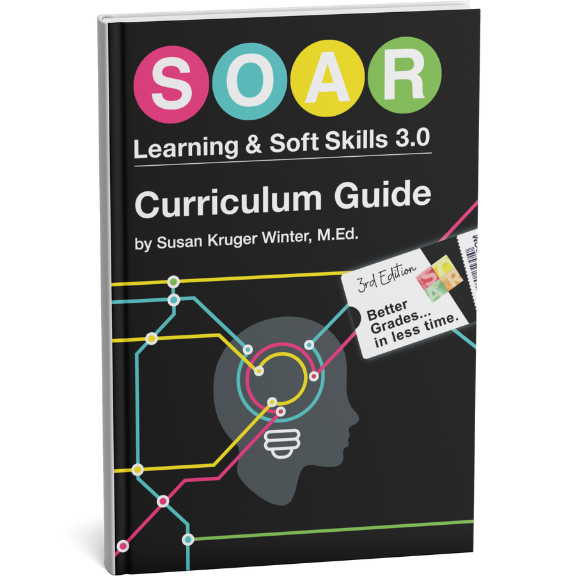“A ‘Good’ Teacher is a ‘Self-Abuser’ Teacher!”
“I am convinced that a ‘good’ teacher is a ‘self-abuser’ teacher!!” My grad-school professor said this in class one day. He was lamenting that his wife, a kindergarten teacher, had been on leave for two years to have their two children (they lived in Canada, with generous maternity leave).
He specialized in reading development and used his wife’s classroom as an observational “lab” for years. He always spoke highly of his wife’s skills and patience as a teacher. It was clear he held her in high regard. So, it was out of total respect that he joked, “Yeah, I think she’s going to keep having children, just so she doesn’t have to go back to work…
“I’m convinced that a good teacher is a ‘self-abuser’ teacher!” I had an immediate, gut-level, visceral reaction…
“That’s me!”
I always put 110% into my work. I spent hours developing interesting lessons. Spent lots of energy trying to keep close tabs on my students. But, every day ended in frustration:
- “I didn’t get through all of my lessons today. What am I doing wrong?”
- “The kids were pretty talkative today. I’ve created all these ‘cool’ hands-on activities, but I still can’t get them to pay attention.”
- “The principal walked in with eight new students for my math class today. I didn’t have enough desks, books, or supplies for them. The rest of the class went crazy because neither they, nor I, expected our class to grow by 30% in the middle of our lesson…” (True story, by the way. I have no idea where those extra eight kids came from.)
- “Why can’t I have a day without any interruptions?”
- “We had a ‘surprise’ assembly today that destroyed our ‘learning center’ time. The kids were crushed. I feel bad that I didn’t give them any warning.”
- “I don’t know what to do about Trevor. No matter what I do, I just can’t connect with him.”
In reality, many of my frustrations came from things over which I had no control. Yet, I still felt defeated.
One summer, I was moving out of town and returned to school to submit my resignation. Robert, a veteran janitor, overheard me speaking with the principal. A few minutes later, I walked towards my classroom to pack.
Robert quickly followed, wheeling a dolly. He flagged me to join him on the elevator. I had always liked Robert, but was shocked by his graciousness.
As we finally reached my classroom, he wistfully said, “Yeah, I hate to see you go. You are the best we have here.” I was shocked! Robert was a 25-year veteran in the district. He had seen his fair share of teachers and classrooms at work. He was always pleasant, but rarely said much. So, I didn’t expect such a kind compliment from him. I doubt he would have said it if he didn’t mean it.
But, how could he feel that way? After seven years, I could barely count on two hands the number of times I came home feeling positive and proud about my accomplishments in the classroom.
Sound familiar?
Maybe my professor was right… “A good teacher is a ‘self-abuser’ teacher.”
My husband had a similar experience. For years, he compared himself to his close friends who were among the best teachers in their high school. He wondered how some of them had time to create such outstanding lessons or write feedback on individual papers and tests for 150 students at a time.
Twelve months ago, he announced that he was taking a one-year leave of absence. Students, teachers, and administrators came out of the woodwork, surprising him with some very sincere and heartfelt comments about how much he would be missed. He was stunned!
“A good teacher is a ‘self-abuser’ teacher!”
If you are a teacher, you are likely a “self-abuser.” Lazy, burned out teachers that don’t care about their students would not be taking the time to read this.
You put a lot of pressure on yourself. You hold yourself to very high standards. By default, that makes you a Self-Abuser Teacher, too.
Why Do We Do This to Ourselves?
When we go to college to become teachers, we are taught the “ideal” way to do everything. We are taught “ideal” expectations.
When we arrive in the classroom, we have “ideal” standards to meet, and “ideal” scores to reach on tests. We are handed books like Harry K. Wong’s First Days of School that state, “Teaching isn’t about leading the horse to water; OUR JOB is to make the horse WANT to ‘drink.'”
The very clear insinuation is that if your students don’t WANT to learn, then it is YOUR fault. Never mind the fact that Kyle came into school today so scared that he hid in an empty locker. Last night, his mother called before you left the classroom.
It was 4:15pm and she was drunk. She yelled and screamed at you through the phone. Now, Kyle is afraid to face you. He’s ashamed. When you go out to speak to him, he hovers and cries. When you tell him “It’s okay. Everything is okay. I’m not mad. I know it’s not your fault…,” he lunges at you with a hug and doesn’t stop crying all day.
How do you make an eight-year-old kid want to learn when he’s carrying a 1000-lb weight on his shoulders from home? How do you follow all of Mr. Wong’s great advice if your school administration neglects to inform you of schedule changes, last-minute assemblies, or interrupts your class to bring you eight new students?
With all due respect to Harry K. Wong and his great teaching strategies, I threw his book in my campfire one summer! I finally realized I had beaten myself up over not being perfect when, in fact, much of the deck was stacked against me. I learned great tips from the book, but his idealistic tone of “perfection in teaching” is very damaging.
DON’T GET ME WRONG… I’M NOT ADVOCATING THAT WE AVOID RESPONSIBILITY!Nothing makes me more angry than when people blame everyone but themselves. As human beings, we teachers can always be learning and striving to improve.
However, we need to stop holding ourselves to impossible standards. We also need to recognize when things are out of our control. Expectations of perfection, as described so gleefully by Harry Wong, guarantee that we will ALWAYS feel like failures!
What Can We Do About This?
There is a mathematical law of the universe that predicted, before man even walked on the planet, that we could never achieve perfection in teaching. It’s called the Pareto Principle, discovered by Vilfredo Pareto. It is otherwise known as the “80/20 principle.” And, it applies to everything!
The 80/20 Principle says that you will wear 20% of your clothes 80% of the time. It also says that 80% of your happiness comes from 20% of your experiences. Likewise, 80% of your frustrations in school will be caused by 20% of your students, or maybe even just 5-10% of your students.
80/20 can also be 95/5… the point is that cause/effect relationships are rarely 50/50. The vast majority of the time, they will be highly disproportionate.
80/20 shows up in the most unexpected places. Just last week, my dad called, all fired up! He and Mom are planning a huge family reunion this summer. Dad is coordinating the purchase of 86 (!) tickets for a Detroit Tiger baseball game. But, he had trouble with a few relatives; collectively, they represented 15 tickets. He drafted a scathing email. Before he hit “send,” he had the sense to hold himself back… and called me to vent.
He shared all the details and had good reason to be upset. But, I also knew there was another side of the story. To talk him off the ledge, I grabbed the calculator.
“Dad, there is a mathematical law that pretty much guaranteed you would have these problems long before you were even born. It’s the 80/20 Principle. 80/20 says that 80% of your challenges will come from 20% of the tickets. So, let’s see… you need 86 tickets, but are having problems with 15 of them… that’s 17%! 80/20 predicted this a l-o-n-g time ago! You really can’t fight it.”
By this time, Dad was laughing. It’s a goofy way to solve a family feud, but it worked. I told Dad to go pour himself a Cold One (for us, that would be a Diet Coke), kick his feet up for a while, and think about how much fun he would have with the 71 other relatives –gathering from around the country– who would be grateful for his time and efforts.
80/20 took him from “scathing mad” to having a “Jimmy Buffet” moment (with Diet Coke, of course).
80/20 can do the same for you. It’s in our nature to create idealistic views about what we want to accomplish, and then focus only on what doesn’t match those expectations. For teachers, that means that we are pre-programmed to focus on: the 20% of the students we can’t reach, the 20% of the time that didn’t go well, the 20% of our lessons that bombed!
We never, EVER give ourselves credit for the 80% of everything we do right!
YOU never give yourself enough credit for the things YOU do right: the students you smiled at throughout the day, the lesson plans that went great, the colleague you saved from going postal at the copy machine, the students who will pass their tests because of your extra help, or the one student who needed a shoulder to cry on during a private conversation after school.
Go easy on yourself and flip your perspective around! Of course, you can always evaluate yourself for improvement, but don’t let the negative self-talk dip into self-criticism.
This week is Teacher Appreciation Week. I challenge you to let the appreciation start within yourself! Make a conscious effort to celebrate your 80% of daily success. Then, celebrate… and have a Cold One. Diet Coke, of course! 😉
Six Steps
Conquer the Chaos
Get Our Free Guide & Information on...

"*" indicates required fields
Get Our FREE Curriculum Guide!
The SOAR® Curriculum
The most critical learning, organizing, and communication skills needed for school. Learn more here.
Who’s Using SOAR®?
SOAR® Guarantee
Click here to learn more.





